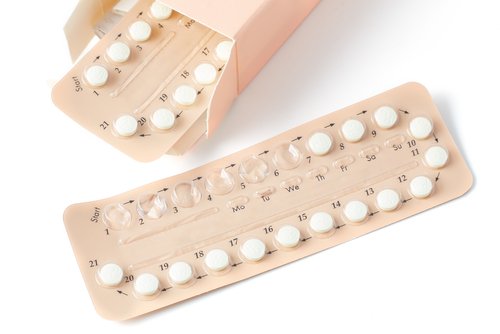Laparoscopic surgery combined with post-surgical treatment with a gonadotropin-releasing hormone agonist, such as triptorelin acetate, can help prevent recurrence and improve fertility in patients with endometriosis, a study shows.
The study, “Clinical evaluation of laparoscopic surgery combined with triptorelin acetate in patients with endometriosis and infertility,” was published in the Pakistan Journal of Medical Sciences.
The clinical manifestations of endometriosis include pain and infertility, among other symptoms.
Currently, the gold standard for treatment of endometriosis is laparoscopic surgery, in which the surgeon operates to remove endometrial lesions by inserting a tiny camera through small incisions into the body.
However, laparoscopic surgery cannot completely remove small, deep, and irregular lesions, and residual endometrial lesions can sometimes recur in a short period of time, which seriously affects the effectiveness of treatments.
In recent years, studies have shown that drug-assisted treatment after laparoscopic surgery in endometriosis patients can be very useful in preventing long-term recurrence of endometriosis, as well as improving chances of pregnancy.
In these cases, gonadotropin-releasing hormone agonist (GnRH-a), gestrinone (a non-estrogen contraceptive), and mifepristone (a steroid that blocks a hormone called progestrone) are among the types of medicines that physicians commonly prescribe.
However, a study that compares the efficacy and safety of these different therapies is still lacking.
To address this, researchers conducted a study to assess the outcomes of 150 patients, diagnosed with endometriosis and infertility, who underwent laparoscopic surgery and were then randomly divided to be treated with either one injection of triptorelin acetate, a GnRH-a, per month for three consecutive months; one capsule of gestrinone twice a week for six consecutive months; or one tablet of mifepristone twice a day for three consecutive months.
The scientists then examined a number of different factors related to pregnancy and endometriosis recurrence rate.
Results showed that the pregnancy success rate in patients treated with triptorelin acetate was 80%, which was significantly higher than in patients treated with gestrinone capsules (48%) or mifepristone tablets (32%).
Additionally, the incidence of adverse pregnancy outcomes (ectopic pregnancy and spontaneous abortion) was significantly lower in patients treated with triptorelin acetate at only 4%, compared with patients treated with gestrinone (12%) or mifepristone (12%).
Kupperman score and subjective symptom score — both of which were used to assess the severity of the disease — were lower in patients treated with triptorelin acetate than in patients treated with gestrinone or mifepristone.
Additionally, the levels of sex hormones and CA125 (a sensitive indicator of endometriosis severity) were significantly better in patients treated with triptorelin acetate than those on the other therapies.
Results suggest “that triptorelin has obvious advantages in regulating sex hormones and CA125 levels for EMT [endometriosis] patients with infertility,” the authors wrote.
The long-term recurrence rate in patients treated with triptorelin acetate was also significantly lower than in the other groups while the incidence of adverse reactions was similar across all groups.
“Laparoscopic surgery combined with GnRH-a can improve the success and good rate of pregnancy in EMT patients, reduce clinical symptoms, avoid long-term recurrence, and increase the risk of adverse reactions. Triptorelin acetate is superior to gestrinone and mifepristone,” the authors concluded.

